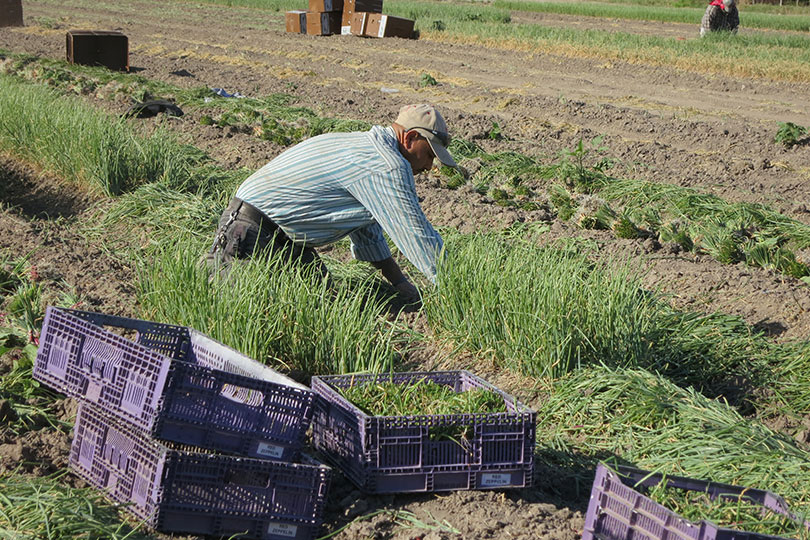By Julie Tomascik
Editor
Texas Farm Bureau and 48 other agricultural groups in the Lone Star State are calling on Congress to support House Judiciary Committee Chairman Bob Goodlatte’s Agricultural Guestworker Act, also known as the AG Act.
The organizations recently submitted a letter expressing support for the legislation and encouraging Congress to include the legislation in any upcoming immigration package.
“Agriculture is at a crisis point and faces a critical farm labor shortage,” the letter said. “Labor is the third-highest expense for agricultural producers, accounting for 17 percent of production costs for the sector and up to 40 and 50 percent in labor-intensive subsectors such as fruit, vegetables and horticulture.”
The legislation, if passed, would replace the current H-2A program with a new H-2C program for agriculture.
“Current guestworker programs, such as H-2A, are extremely expensive and plagued with burdensome mandates. In addition, the H-2A program has never been open for key segments of agriculture like dairy, livestock, poultry and timber,” the groups said.
The lack of a stable workforce for agriculture places domestic food production at risk.
“Increasing immigration enforcement without also reforming our worker visa program could cost America $60 billion in agricultural production,” the letter said. “This situation makes U.S. agriculture less competitive with foreign farmers and less reliable for the American consumer. Securing a reliable and competent workforce is essential to agriculture, the economy and our national food security.”
The new program, called H-2C, would fall under the U.S. Department of Agriculture instead of the Department of Labor, which is who currently administers the H-2A program.
It would be available to season and year-round agricultural employers like dairies, raw food processors, timber, aquaculture and others.
The AG Act, according to the groups, helps agriculture by allowing experienced agricultural workers to join and participate in the H-2C program. But it does not provide a pathway to citizenship, the groups said.
“Farm workers who are currently ineligible can get pre-certified to join the H-2C program. After leaving the U.S. for a period of time, they can return to the U.S. and begin to work legally,” the letter of support stated. “The AG Act does not provide a pathway to citizenship. It simply allows individuals to work temporarily in the U.S. if they are legally participating in the H-2C program.”
Through the H-2C program, employers would have the ability to invest in training workers for specialized or difficult-to-fill jobs by allowing workers an initial stay of 36 months. Subsequent visas for year-round agricultural jobs and all other H-2C visas will afford a work period of 24 months.
Under H-2C, employers would be required to report workers who abandon their jobs within 72 hours, and the workers who do not return home as required are barred from reentry into the U.S.
Agricultural employers will have two years to adjust their workers and operations to the H-2C program before mandatory E-Verify takes effect.
“In 1910, 76 percent of Texans lived in rural counties. Today, only 15 percent do,” the groups stated. “Other states share these same statistics, proving how quickly our urban population is growing. In order to give America’s agricultural producers the labor needed to run successful operations to feed and clothe a rapidly growing population, Congress must pass the AG Act.”
Texas farmers, ranchers and dairymen need a reliable guestworker program, the groups stressed.
“Texas agriculture has waited over 20 years for meaningful reforms to our broken guestworker program,” the letter said. “We must not let this opportunity pass us by.”
The AG Act was passed out of the House Judiciary Committee on October 25, 2017 with a narrow 17-16 vote. The legislation is currently included under a broader immigration package, H.R. 4760, the Securing America’s Future Act, which is awaiting action in the U.S. House of Representatives.
“Texas Farm Bureau is hopeful Congress will pass the AG Act to provide farmers and ranchers the labor needed to successfully feed and clothe the world,” Laramie Adams, TFB national legislative director, said. “This is a matter of national food secu


As the wife of a farmer who raises over 7,000 acres of wheat & milo each year, this is a much needed farm bill. The farmer/employer cannot and will not be able to run an operation without the labor provided by the H-2C bill which could be a lifesaver!
Please continue pushing for H-2C!!!